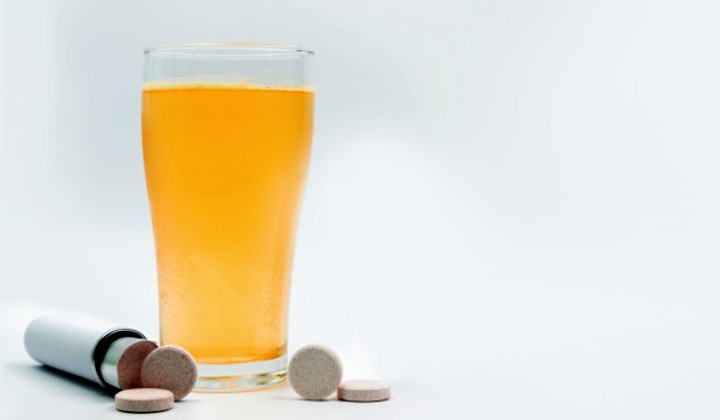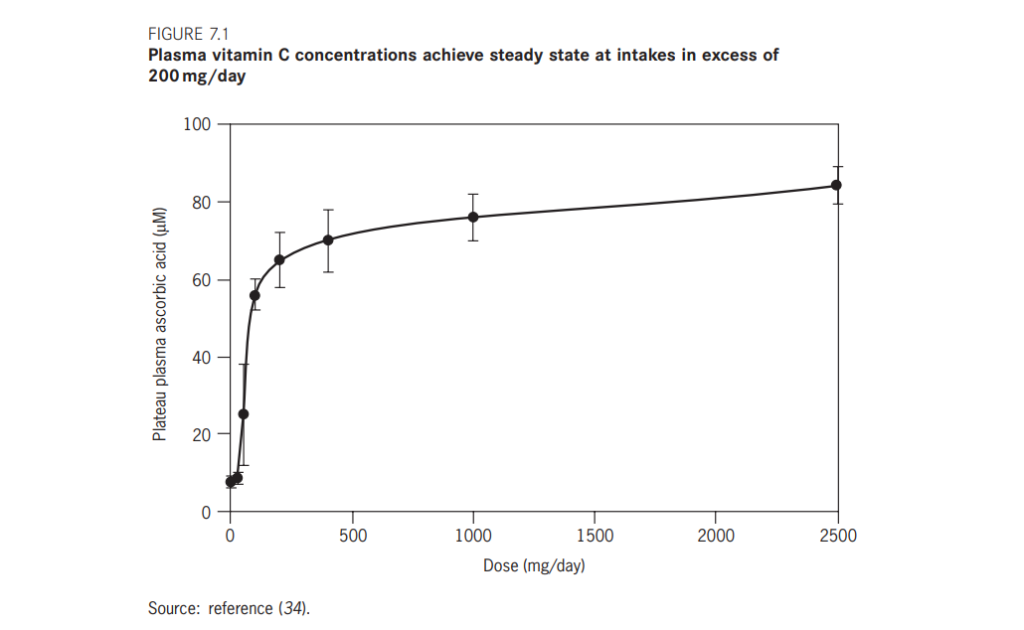Everything We Know About Vitamin C In Relation To Covid-19

Subscribe to our new Telegram channel for the latest stories and updates.
Vitamin C is an extremely popular health supplement, commonly cited to boost the immune system and promote general health. However, some people have started to make dangerous claims, glorifying the benefits of Vitamin C so much that it’s been touted as a cure to everything from the common cold to cancer to Covid-19.
While lack of vitamin C used to be a concern, in modern times, there is barely a reason to be worried about vitamin C deficiency, which can result in a painful disease called scurvy. Fresh food such as vegetables and fruits readily supply us with the nutrients our body needs.
Speaking of which, the recommended nutrient intake (RNI) for vitamin C is 45mg per day for an adult. If the adult has a regular diet of food that includes vitamin C, the body can sustain itself with zero additional intake of vitamin C and not show signs of scurvy for at least a month.

(Credit: WHO)
In fact, there’s actually a threshold of how much vitamin C your body can absorb. Once your body has almost reached full saturation, additional doses of the water-based vitamin will no longer be absorbed, and will instead be expelled out of the body with your urine.

(Credit: WHO)
For the health-conscious who are already eating a fair amount of fresh vegetables and fruits, getting sufficient amounts of vitamin C, additional supplements might actually be bad for you.
Excessive amounts of supplemental vitamin C can lead to a potential toxicity that will result in unpleasant diarrhoea, but is not fatal. For daily use, 1g of vitamin C appears to be the advisable upper limit of dietary intake per day.
Basically, any brand (of vitamin C supplements) is good as long as you take the prescribed dose.
Dr Suria Ridhuan to TRP
Are the benefits of vitamin C so great that it has the potential to cure the pandemic?
According to the World Health Organisation, despite the frequently made associations between vitamin C consumption and health status, there is little concrete evidence to support the statement as results from multiple studies remain inconsistent.
But while they can’t cure the disease, high-doses of vitamin C do have a positive impact. A 2016 study suggested that vitamin C in high doses does indeed boost the human immune system and aid recovery from illnesses.
While previous research focused on the daily intake of a healthy adult, further research in recent years focused on findings of the effects vitamin C has on those who are sick, especially with viral illnesses such as the common flu.
Multiple studies found that high-doses of vitamin C had a proven virucidal effect, meaning they could be poisonous to viruses under certain conditions.

Since then, the Intravenous Vitamin C (IVC) therapy has been studied, involving high-dosages (1,000cc and up) of vitamin C being directly introduced into the body through an IV. Further studies found that this therapy improved the physical condition of the patient immediately.
However, globally, IVC therapy is not recognized as an official practice, and cannot claim to be a ‘cure’ for anything.
As death tolls rise due to Covid-19, which is also a kind of influenza virus, some researchers have presented high-dose IVC therapy as an alternative treatment for patients with cancers and infections to help them recover quicker.
Studies have shown that the main cause of death from Covid-19 is because the stressed caused on the lungs that results in organ failure. As Covid-19 vaccines and antiviral treatments are not yet available, there has been some attempt to use IVC as a form of treatment for the time being.
In New York, some hospitals have started treating coronavirus patients with IVC therapy. While the use of IVC therapy isn’t a proven cure, Northwell Health facilities claim that patients who receive IVC therapy recover significantly better than those who do not. In an effort to further study the claim, there has been a clinical trial set up in China that will be able to see results near the end of the year.

In conclusion, vitamin C kinda helps, but only under the right circumstances.
Small doses taken orally as an everyday supplement, while without any particular health risk, also does not have a considerable positive immunity boost if one is already getting enough vitamin C through diet.
So, if you enjoy taking vitamin C supplements and think it helps prevent you from falling ill, go ahead- but it definitely does not prevent you from getting Covid-19.
Remember to practice social distancing during this pandemic! Catch more updates by following us on Facebook, Twitter, and Instagram.
Anne is an advocate of sustainable living and the circular economy, and has managed to mum-nag the team into using reusable containers to tapau food. She is also a proud parent of 4 cats and 1 rabbit.





